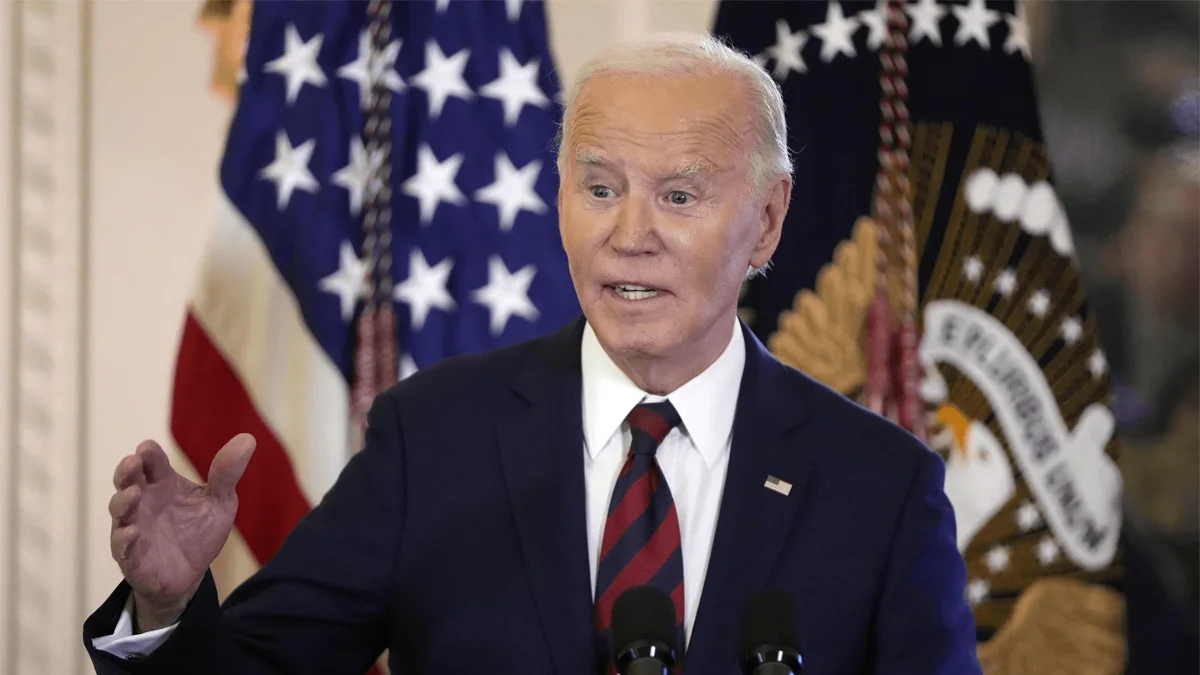Necessary Always Active
Necessary cookies are required to enable the basic features of this site, such as providing secure log-in or adjusting your consent preferences. These cookies do not store any personally identifiable data.
|
||||||
|
||||||
|
||||||
|

The US government has launched a trade investigation into legacy semiconductors manufactured in China. Reuters reported that the newly launched Biden trade probe could introduce more tariffs on Chinese-made chips that are used on a wide range of goods, including motor vehicles, telecoms, and washing machines.
The US trade probe will focus on Chinese legacy chips and could expand to everything else, including household goods, cars, and defence systems.
The White House said that China “routinely engages in non-market policies and practices, as well as industrial targeting” in the chip industry. This allows Chinese manufacturers “to significantly harm competition and create dangerous supply chain dependencies in foundational semiconductors.”
According to the White House statement, the investigation will also evaluate China’s “acts, policies, and practices on the production of silicon carbide substrates or other wafers used as inputs into semiconductor fabrication.”
The investigation comes about four weeks before Donald Trump assumes office. Government officials say the outcomes of the probe will be handed over to the Trump administration in January 2025 for finalization.
The new US trade probe could provide the Trump administration with a ready avenue to impose hefty tariffs on Chinese imports, something he already threatened to do. Should the new administration take the probe up, it will have to complete it within a year.
The Biden administration has imposed a 50% tariff on China-made semiconductors starting January 1, 2025. The administration also curbed the export of memory and advanced AI chips as well as chip making equipment to the Chinese market. Recently, the US government increased tariffs on Chinese polysilicon and solar wafers to 50%.
The trade probe on China will be conducted by the US Office of Trade Representative. This office says the probe is aimed at protecting US and other manufacturers from China’s massive buildup of chip supply.
The trade agency claims that it has evidence that China is targeting to dominate the semiconductor industry the way it’s building up the solar panel, aluminum, steel, electric vehicle, and critical mineral sectors.
“This is enabling its companies to rapidly expand capacity and to offer artificially lower priced chips that threaten to significantly harm and potentially eliminate their market-oriented competition,” Katherine Tai, US Trade Representative said.
Government officials say the trade probe will go beyond investigating imported semiconductors- it will check their incorporation in downstream products like cars, medical, and defense equipment. The US Commerce department says that its data shows that two-thirds of products that use chips in the US run on Chinese legacy chips.
Further, 50% of US companies have no idea of the origin of their chips. These include those in the defense industry- which is very alarming. US semiconductor production and supply chain was disrupted by Covid-19. The company has been importing semiconductors from Asian countries until recently when it started rebuilding its domestic chip production with the $52.7 billion Chips Act funding.
China plans to produce over 60/5 of the global legacy chip capacity in the next 10 years. The US sees this plan as one that discourages investment in other countries and constitutes unfair competition.
The Biden trade probe is guided by provisions of Section 301 of the US Trade Act. This is the same statute that the President elect, Donald Trump, invoked when introducing a 25% on Chinese products valued at $370 billion in 2018 and 2019. These tariffs affected US-China trade relations, setting off a trade war that lasted for close to 3 years.
The trade probe will involve collecting public comments. The outgoing Biden administration will commence this process on January 6, 2025. The Federal Register notice shows that public hearing sessions are scheduled for March 11 and 12, 2025.